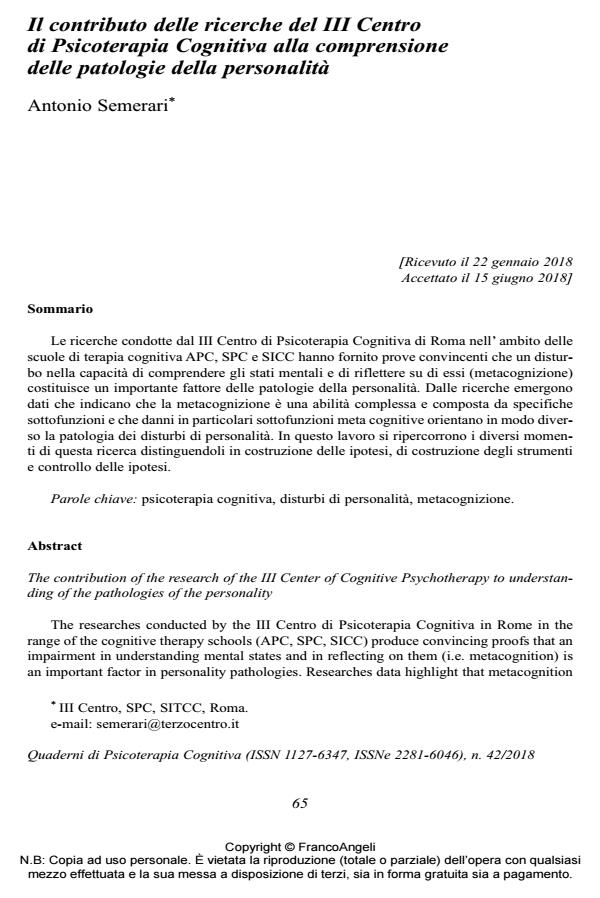The contribution of the research of the III Center of Cognitive Psychotherapy to understanding of the pathologies of the personality
Journal title QUADERNI DI PSICOTERAPIA COGNITIVA
Author/s Antonio Semerari
Publishing Year 2018 Issue 2018/42
Language Italian Pages 14 P. 65-78 File size 105 KB
DOI 10.3280/QPC2018-042005
DOI is like a bar code for intellectual property: to have more infomation
click here
Below, you can see the article first page
If you want to buy this article in PDF format, you can do it, following the instructions to buy download credits

FrancoAngeli is member of Publishers International Linking Association, Inc (PILA), a not-for-profit association which run the CrossRef service enabling links to and from online scholarly content.
The researches conducted by the III Centro di Psicoterapia Cognitiva in Rome in the range of the cognitive therapy schools (APC, SPC, SICC) produce convincing proofs that an impairment in understanding mental states and in reflecting on them (i.e. metacognition) is an important factor in personality pathologies. Researches data highlight that metacognition is a complex ability, that is made of different sub functions and that impairments in specific metacognitive sub functions orient the pathology of Personality Disorders in a different way. In this work the different moments of our research are retraced, distinguishing between hypothesis construction, instruments construction and hypothesis verification.
Keywords: Cognitive psychotherapy, personality disorders, metacognition
Antonio Semerari, Il contributo delle ricerche del III Centro di Psicoterapia Cognitiva alla comprensione delle patologie della personalità in "QUADERNI DI PSICOTERAPIA COGNITIVA" 42/2018, pp 65-78, DOI: 10.3280/QPC2018-042005